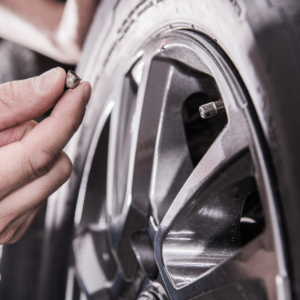Why Does My Low Pressure Light Always Come On In The Winter?
January 16, 2023 It happens to us all. One day you’re riding along in your car just fine and then all of a sudden you get the notification that one of your tires is low on air. You might just write it off to a little loss of air in one tire, but then another tire and another tire light pops on and suddenly all of your tires are low on air. If you’ve been following this blog you know that low tire pressure can cause safety issues and even be a complicating factor of getting into a New Haven auto accident.
It happens to us all. One day you’re riding along in your car just fine and then all of a sudden you get the notification that one of your tires is low on air. You might just write it off to a little loss of air in one tire, but then another tire and another tire light pops on and suddenly all of your tires are low on air. If you’ve been following this blog you know that low tire pressure can cause safety issues and even be a complicating factor of getting into a New Haven auto accident.
While low tire pressure is not the only safety concern in the winter months, it is certainly at the top of the list. Other concerns like a dead or dying battery and snow and ice on the roads can also contribute to safety concerns throughout the winter. Low tire pressure however, can be a major issue when trying to navigate the cold and icy roads of the winter. Therefore it is critical to your safety that your tires are inflated to the suggested pounds per square inch (PSI) that is listed in the owner’s manual of your vehicle. If you no longer have your owner’s manual you should be able to look on the side of your tire to get the right PSI and fill your tire accordingly.
So, what causes this annoying phenomenon that seems to have to be taken care of each and every winter? The simple answer is of course, the cold air is making your tire pressure lower. When the temperature falls, the molecules of air in your tires slow down their movement and become closer together, this makes it so the air in your tires takes up less space then when the temperature is warm and therefore leads to the tires being under inflated.
According to the folks at AAA you should expect to lose 1 PSI per every 10 degrees that the temperature drops. Living in a climate like New England that could be the difference between a properly inflated tire and one that is dangerously under inflated. It is important that as soon as you are notified by your vehicle warning lights that you get to a filling station to properly inflate your tires to keep your vehicle safely attached to the road. If your vehicle does not warn you of an underinflated tire you may want to check the pressure yourself manually so you aren’t running into an issue where your tires are woefully underinflated which could lead to a dangerous situation for you and your passengers. This is a good habit to get into once a month as the weather continues to get colder.
While we have been quite lucky this year with temperatures in our area hovering in the 40 degree range it is quite possible that with February on the horizon and into March things will get colder and your tires will begin to decrease in air pressure. When this happens it is critical for you to notice it and take action so you are riding on tires that are properly inflated and will keep you safe.
If you would prefer not to fill your own tires in the cold weather you can take them to a local mechanic who can inflate them to the proper level for you. This way your tires will be properly filled and you will not be risking a New Haven auto accident. This one small step can give you peace of mind throughout the entire winter months.
Low tire pressure does not guarantee that you will get into an accident, but if you do, we are here for you. Contact our office if you are injured in an accident and one of our experienced attorneys will hear your situation and work with you to protect your long-term interests.
